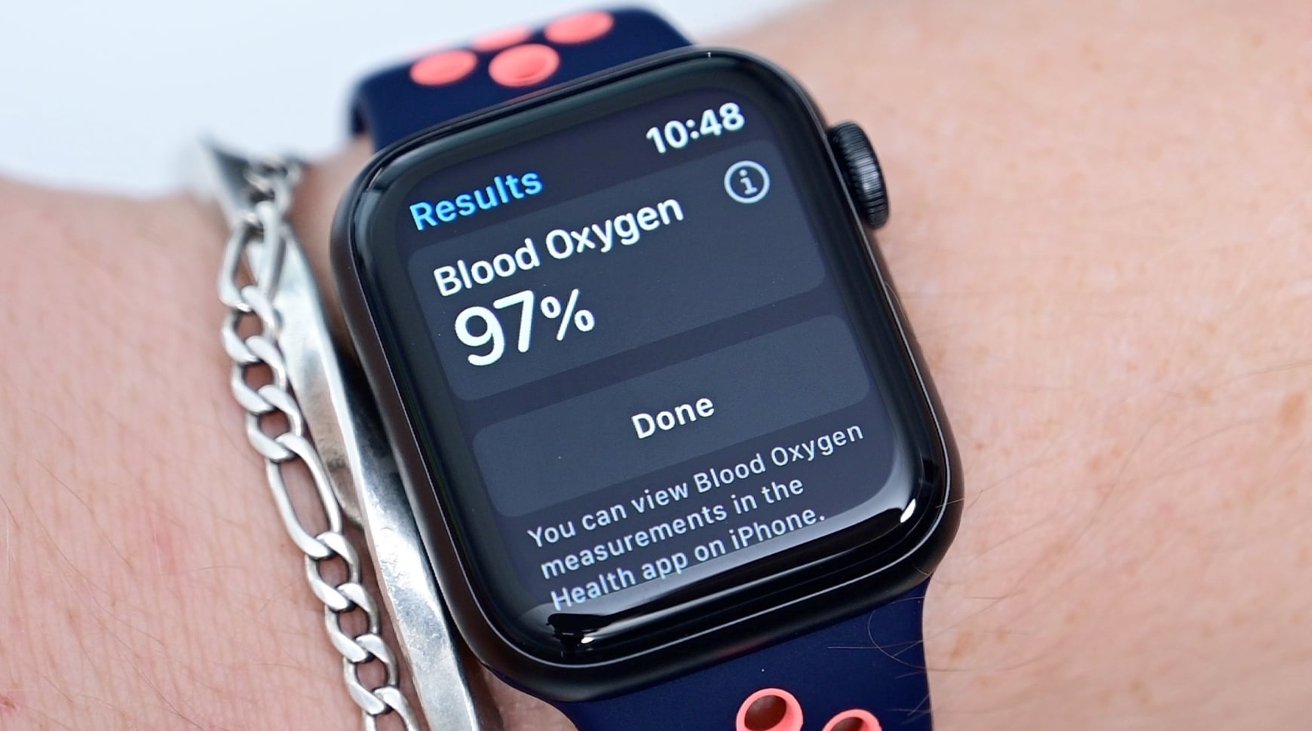Apple Watch Series 10 will monitor blood pressure, detect sleep apnea
A new report says that after a decade working on health features like blood pressure monitoring, Apple will be ready to add it to 2024's Apple Watch Series 10.

An Apple Watch showing a blood oxygen reading.
An Apple Watch blood pressure sensor has been rumored for years, but according to Bloomberg, it's also one of the features that Apple has been working on since the start of the Apple Watch.
Bloomberg's report is chiefly about claims that Apple prefers to concentrate on preventative care features, instead of "post-sick" ones. "Tim [Cook] and Jeff [Williams are so terrified of doing something wrong and are focused on protecting the company's image," one source told the publication.
This has reportedly frustrated doctors and other medical experts who have been hired by Apple. But at the same time, there are new health features that look to be finally near to being ready.
"The planned addition of a blood pressure sensor to the Apple Watch next year is a pathbreaking technology," says Bloomberg. "In its first iteration, however, the system is designed to just tell a user if their blood pressure is trending upward and to offer a journal for the user to jot down what was happening when hypertension occurred."
"To avoid potentially giving a misdiagnosis, the feature will then direct a user to talk to their doctor or check their blood pressure with a traditional cuff," it continues, "which can provide exact systolic and diastolic measurements."
Apple is reportedly working on a further version that would give more exact readings, and potentially diagnose conditions. But this version is still a long way off.
A future Apple Watch blood glucose system is predicted to work in a similar way, with it monitoring trends rather than offering precise blood sugar readings.
It's not clear when that feature may come, but the 2024 Apple Watch Series 10 is also believed to include a sleep apnea detector.
But alongside the work with the Apple Watch, Apple is reportedly also looking to using both AirPods and Vision Pro as health tools.
As early as 2024, AirPods may be able to work as hearing aids, down to performing tests that are usually done by audiologists.
Then reportedly Apple is working to perfect a full-body tracking system for the Apple Vision Pro.
Separately, Apple has been said to be developing mental health features for the Vision Pro.
Read on AppleInsider

Comments
https://www.health.harvard.edu/heart-health/tips-to-measure-your-blood-pressure-correctly
give me the watch any day. What a dream.
That is the trigger to perhaps make an appointment with a specialist for a closer look.